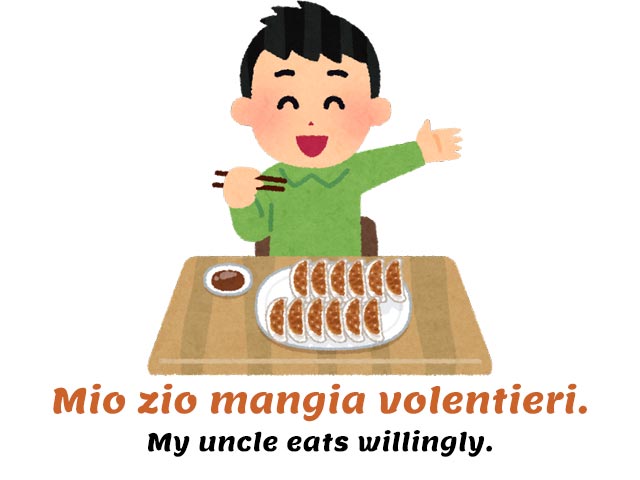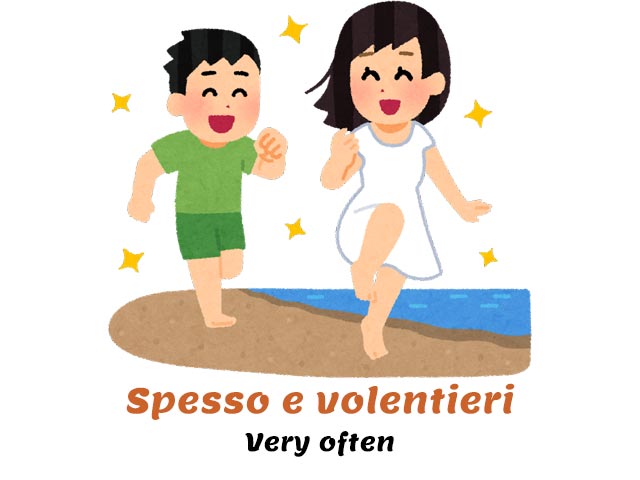Italian word of the day
| Pronunciation | |
| English translation | Willingly, gladly, of course |
| Origin | From the Latin word voluntarie, “voluntarily” |
Examples
| Mia figlia va a scuola volentieri. | My daughter goes to school willingly. |
| Prendi una birra con noi? – Volentieri! | Will you have a beer with us? – Of course! |
| Verrei volentieri alla festa, ma devo lavorare. | I would gladly come to the party, but I have to work. |
| Mio zio è una buona forchetta. Mangia volentieri. | My uncle is a good eater. He eats willingly. |
You can also use other adverbs with it to form expressions like molto volentieri or ben volentieri.
| Verrò molto volentieri al tuo compleanno! | I will very gladly come to your birthday! |

How to use volentieri
As an adverb, volentieri modifies a verb. It comes after the verb, never before it.
| Ascolto volentieri musica classica. | I enjoy listening to classical music. Literally: I listen willingly to classical music. |
| Lo farò io volentieri. | I will gladly do it. |
You can find it in the expression spesso e volentieri, which means “very often”. Literally, it means “often and willingly”.
| Spesso e volentieri mi dimentico di fare i compiti. | I forget to do my homework very often. |
| Vado spesso e volentieri in vacanza con la mia migliore amica. | I very often go on vacation with my best friend. |

As said, volentieri can also be used as a response to an invitation:
| Vuoi un’altra tazza di tè? – Volentieri! | Would you like another cup of tea? – Sure! |
More free Italian resources
You might want to keep learning Italian online with these free Italian resources:
❤️ If you liked this lesson on the meaning of volentieri in Italian, share it with your friends!


